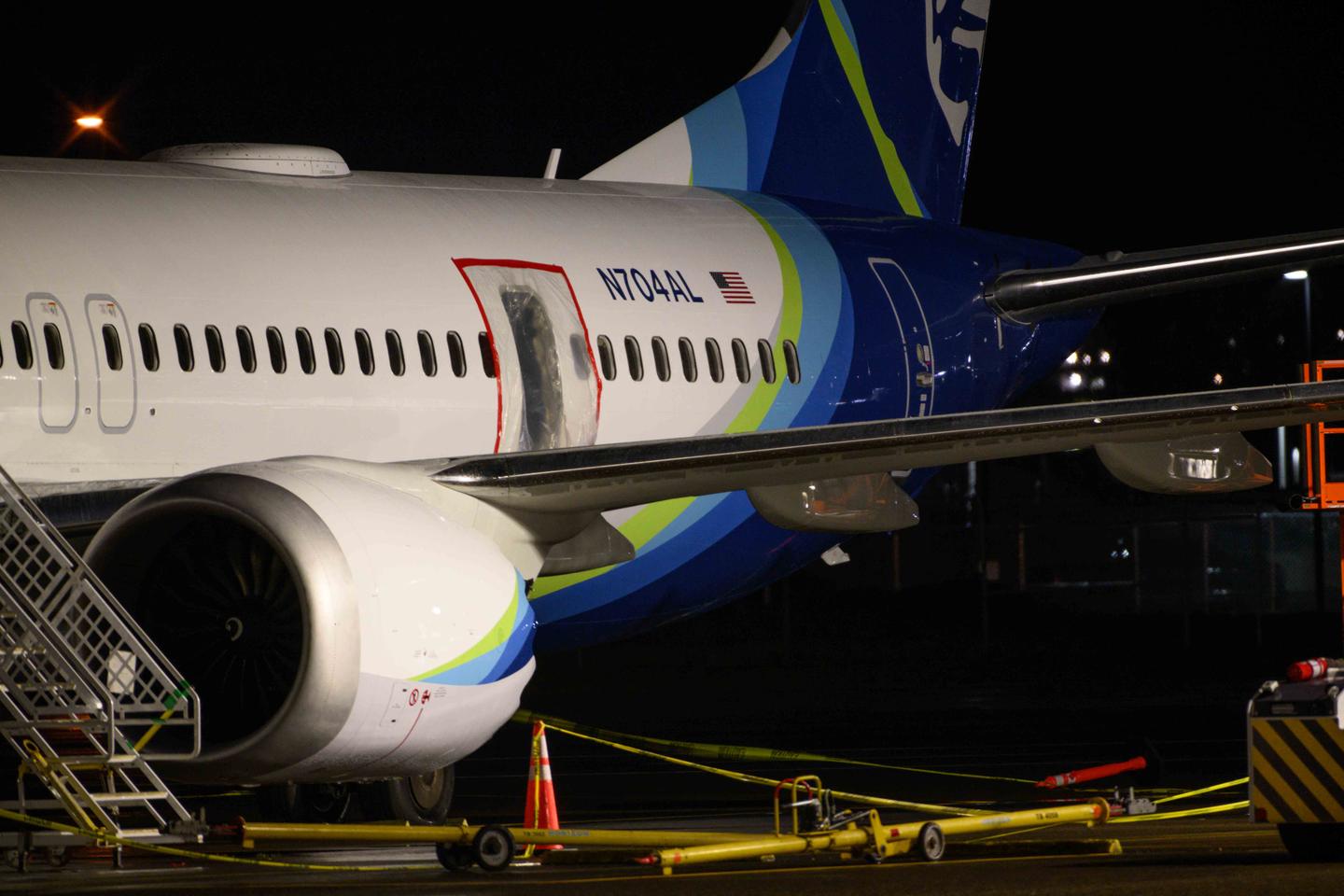


Following the disaster averted on board an Alaska Airlines Boeing 737 MAX 9, which saw a portion of its fuselage torn off on Friday, January 5, the CEO of the US aircraft manufacturer, David Calhoun, made amends in front of Boeing executives at an emergency meeting on Tuesday, January 9: "We're going to approach this, number one, acknowledging our mistake," he explained, adding that Boeing's airline customers were "shaken to the bone," but would retain their "confidence in all of us."
Really? After inspections of other aircraft showed that screws in the piece that plugs the space reserved for an additional emergency door were not properly tightened? After two 737 MAX disasters in 2018 (Lion Air, Indonesia, 189 dead) and 2019 (Ethiopian Airlines, 157 dead), which revealed design flaws and a willingness to conceal information from US regulators?
As some financial analysts do, we could claim that this is a quality control problem that will be quickly overcome. In reality, confidence in Boeing has been shattered. "They're right back where they have been for the last five years. Calhoun needs to do something drastic, and the company needs to do something drastic, to get out of this. [...] This is a company that seems to be focused on profits rather than safety," charged Paul Argenti, professor of corporate communications at Dartmouth University, on CNBC on January 9.
Savings policy
In fact, the software used by Calhoun and the Boeing teams is in question. Calhoun is a disciple of Jack Welch (1935-2020), who ran General Electric from 1981 to 2001, turning it into the world's most powerful company by focusing on profitability. The conglomerate collapsed and was eventually dismantled, while Welch is accused of having killed US industrial capitalism. His heirs, including Calhoun, are now accused of killing Boeing, the civil and military aeronautics giant. Too big to fail, it might well have sunk had it not been strategic and saved by advantageous refinancing during the "Covid years."
It all goes back to the shift in corporate culture at the turn of the century with the rise of Airbus, which the company did not take seriously, and the race to save money. As journalist Peter Robison explained in his book Flying Blind (Anchor Books, 2021), the company's slogan, "working together," became "more for less." Boeing shifted from an engineering culture to a financial and sales culture. Despite its setbacks, it is still worth more than Airbus on the stock market.
The drama unfolded in 2000, during a major strike by 23,000 engineers in Seattle, which led to a divorce between unionized engineers and management. Management then moved its headquarters to Chicago, far from its production centers.
You have 55% of this article left to read. The rest is for subscribers only.
